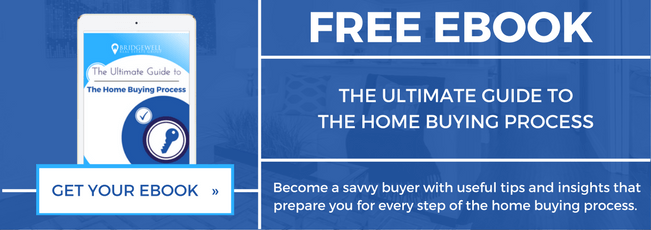Empty Homes Tax
City of Vancouver’s Empty Home Tax Important Information
The Empty Homes Tax, also known as the Vacancy Tax, has recently been introduced by the City of Vancouver and will affect vacant or un-occupied homes.
This blog goes through important information on what the Empty Homes Tax is, whether your home qualifies or is exempt, and how much the tax is.
Read this blog for everything you need to know & frequently asked questions regarding Vancouver’s Empty Homes Tax.
What is the Empty Home Tax?
Vancouver has recently introduced the Empty Homes Tax, also known as the Vacancy Tax. Homes that are un-occupied or empty for more than 6 months of the year and do not fall under the category of a principal residence will be subject to a tax of 1% of the home’s assessed value.
Most homes will not be subject to the tax, as it does not apply to principal residences or homes rented for at least six months of the year; however, all homeowners are required to submit a declaration.
The City of Vancouver has stated that having a large number of vacant homes has significantly hurt their rental market, and that by taxing homes that are vacant the majority of the year that they will return empty or under-utilized properties to use as long-term rental homes for people who both live and work in Vancouver.
The purpose of the Empty Homes Tax is to help relieve pressure on Vancouver’s rental housing market, which they have stated has been largely successful after reviewing the statistics from the initial returns of Vancouver’s 2018 empty homes tax.
The number of vacant properties in Vancouver has fallen by 15 per cent in one year and the city says just over half of those previously empty homes have been returned to the rental market.
The figures show 922 properties were listed as vacant last year, compared with 1,085 in 2017, the first year of the initiative. Of the 163 properties reclassified as occupied, the city says more than half of those are listed as rentals with tenants.
What is the Empty Homes Tax Rate?
The Empty Homes Tax also known as the Vacancy Tax is for properties in the City of Vancouver deemed empty for more than 6 months of the year (updated 2019).
Properties deemed empty will be subject to a tax of 1% of the property’s 2018 assessed taxable value.
Each year, one owner of residential property in Vancouver is required to submit a property status declaration to determine if their property is subject to the tax.
How is the Empty Homes Tax calculated?
The Empty Homes Tax is calculated based on 1% of a property’s assessed taxable value of the previous year.
If, for example, your property is assessed at $1,000,000 as of the previous tax year, you would be required to pay $10,000. ($1,000,000 x 1% = $10,000)
Most homes will be exempt if they are principal residences or rented out for at least 6 months of the year. All owners must make a status declaration by Feb. 4, 2019 or be automatically assessed the tax and/or a $250 penalty.
Is the Empty Home Tax the same as the Speculation Tax and Vacancy Tax?
To put this simply, the Empty Homes Tax is a municipal tax, the Speculation Tax is a provincial tax.
The City of Vancouver’s Empty Homes Tax is separate from BC’s Provincial Speculation and Vacancy Tax in the sense that the Empty Home Tax only applies to properties that are located in the City of Vancouver where as Speculation Tax is provincial and applies to all properties located in taxable regions in BC.
It is important to note that the declaration for the Empty Homes Tax is due on February 4, 2019, while the declaration for the Speculation and Vacancy Tax is due March 31, 2019.
What is considered a principal residence?
Principal residences are part of the Empty Home Tax exempt homes, so it’s important to determine what the definition of a principal residence is.
A principal residence is the place where someone usually lives and makes their home and conducts their daily affairs. This is the place where someone receives mail and the address where someone pays their bills from, including utility bills. For the purposes of the Vacancy Tax, an owner can only have one principal residence.
If a place is your principal residence then you would be using it as your address for documentation such as:
- Income tax returns
- A driver’s licence or other pieces of identification
- Insurance documentation
- Medical Services Plan documentation
- Vehicle registration
What is considered a vacant or empty property?
What is a “vacant” or an “empty” property? Properties are considered to be vacant if they have been unoccupied for more than six months during the vacancy reference period, being the calendar year.
A property is considered to be “unoccupied” if it is neither the principal residence of the registered owner, their family member or friend, nor occupied by a tenant or subtenant.
What properties will be exempt from the Empty Home Tax?
The following will not be subject to Empty Home Tax:
- Properties used as a principle residence by the owner, his/her family member, or other permitted occupier like a tenant for at least six months of the 2018 year will be exempt.
- Properties rented for residential purpose for at least six months of the current year (rental periods must be 30 consecutive days or more in order to count towards the 6 months) will be exempt.
- The property meets the exemptions outlined by the City of Vancouver.
Does the Empty Home Tax apply to all residential properties in the Lower Mainland?
The Empty Homes Tax only applies to Class 1 Residential properties within the city of Vancouver.
If your property is located in a municipality that does not fall within the city of Vancouver, such as the University Endowment Lands, Burnaby or Surrey, the tax will not apply.
If a property has joint owners, is each owner required to make a property status declaration?
An Empty Homes Tax property status declaration is required for each parcel of Class 1 residential property and only one registered owner can submit the declaration. Any additional owners will not be able to submit a second property status declaration.
Empty Home Tax Exemptions
The City of Vancouver has acknowledged that there are of course other reasons than holding and flipping for having a vacant house. With that in mind, there are some special circumstances where property owners may not be able to have the property occupied. A few of the major exemptions are mentioned below.
- Owner or Tenant in Medical Care
- Under Construction or Renovation
- Under Re-zoning or Re-development
- Conservation of Heritage
- Strata Restriction on # of units allowed to be rented
- Court Order
- Limited Residential Use
- Owner passed away
For more information on exemptions and frequently asked questions relating to the Empty Homes Tax you can check out the FAQs page.
—–
Looking to buyer or sell real estate in the Greater Vancouver and Fraser Valley areas? Start a conversation with a realtor from Bridgewell Group by calling or texting 604-319-2020 or email [email protected] to talk to a realtor about buying or selling in the Greater Vancouver area today.




